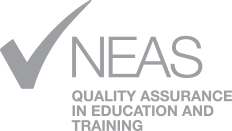
Quality Assurance (QA) is at the core of what we do here at NEAS.
But why is it so important?
In general, QA ensures that business processes are consistently reviewed, leading to improvements in both the customer experience and the quality of products or services offered. In education, and in English Language Teaching (ELT), quality assurance supports the integrity and effectiveness of educational programs, enhancing the overall student satisfaction and fostering a culture of continuous improvement.
So, how does quality assurance add value to businesses in ELT?
1. Enhancing Students Satisfaction
Quality assurance helps ensure that providers are consistently meeting the needs and expectations of students, leading to higher satisfaction rates. By promoting best practices, adhering to consistent standards, collecting feedback, maintaining high teaching quality, providing adequate resources, and regularly reviewing educational content, quality assurance helps create an environment where students receive high-quality education and support, leading to greater satisfaction and positive outcomes. NEAS supports this by implementing a student-centered quality assurance framework focused on areas of improvement that directly benefit learners and their educational journeys.
2. Building Trust and Credibility for Market Competitiveness
Considering the substantial financial investment required for studying abroad, students are more likely to select a reputable provider for their offshore studies. Building a strong reputation then becomes essential to run a successful ELT business. But how? Well, by consistently delivering high-quality education. QA assists in this process by upholding industry best practices and offering providers the chance to benchmark their services against established standards. NEAS’ quality assurance activities encourage the review and improvement of providers’ practices, reinforcing their commitment to excellence and strengthening their reputation as trusted ELT providers. This not only attracts enrollments but also gives them a competitive edge in the market.
3. Driving Continuous Improvement
Quality assurance goes beyond simply meeting compliance requirements; it signifies an ongoing commitment to continuous improvement. It involves a never-ending process of refining and enhancing practices, which encourages innovation and provides a competitive edge. This commitment also supports professional development and growth, contributing to a positive organisational culture. By consistently reviewing and improving processes, providers enhance efficiency and adaptability, positioning themselves for long-term success in the market. Similarly, this continuous improvement mindset ensures better preparation for regulatory audits. NEAS supports this journey through its Quality Assurance Framework, which covers teaching, learning, assessment, student support, and governance, helping ELT providers strive for ongoing excellence.
Investing in quality assurance practices is not just about meeting standards—it’s about exceeding expectations and positioning the business for sustainable growth and success. Through the NEAS Quality Assurance Framework, ELT providers can ensure they deliver high-quality education and support, fostering student success and institutional excellence though continuous improvement.
July 2024
